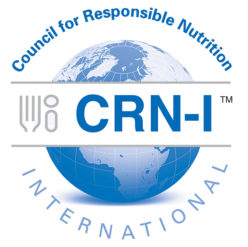A Quality Dietary Supplement: Before You Start and After It’s Marketed
16 OCTOBER 2014 | BRISBANE, AUSTRALIA
Download 2014 CRN-I Scientific Symposium Report (PDF) or view via European Journal of Nutrition
ABSTRACT TRANSLATIONS:
Arabic | Chinese | English | French | German | Japanese | Korean |Portuguese | Russian | Spanish
Consumers worldwide are turning to dietary supplements as one part of their personal goal to lead healthier and more active lives. In truth, the quality of life now supersedes the length of life as no one would trade living to one hundred (the last forty with compromised physical abilities and decreased mental acuity) for 80 years of travel, time with family, and intellectual pursuits. If there is the possibility of preventing a disease or debilitating condition through efficient lifestyle changes (additions, subtractions, modifications) and to also avoid the costly and escalating medical and pharmaceutical treatments that accompany having the disease/condition, then a sensible individual would focus on their overall health and wellness…proactively, instead of reactively. However, an important caveat is that over-regulation or inappropriate application of current regulations can increase the price of dietary supplements and nutritional products and thus cause underutilization of the potentially beneficial physiological attributes of these products. Conversely, strict adherence to regulatory guidelines could result in safer dietary supplements and fewer adverse reactions requiring medical attention. If new regulations or stricter interpretation/application of existing regulations result in certain dietary supplements being taken off the market, will continued demand create a completely unregulated, underground economy that will create unforeseen problems? More research should be supported by government agencies to determine the effectiveness of dietary supplements, nutritional products and complementary medicine in reducing personal and societal medical costs and further contribution to the overall health of the population.

